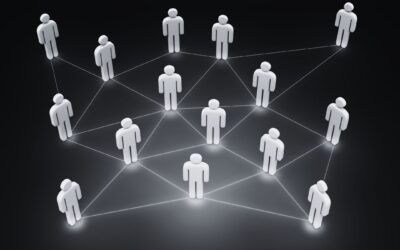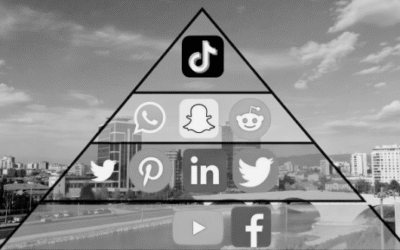Data from recent years indicates that globally the consulting services market is experiencing increasing growth, of course with different growth percentages depending on market maturity and growing economies.
This trend can also be observed locally through the increasing presence and popularization of companies and individuals working in this field.
With the emergence of more and more companies and individuals in the market, the question arises of which services require hiring a consultant, how to choose the right consultant, and of course what is needed to become a consultant?
To answer these questions, we will start from the beginning by defining what consulting represents.
What is consulting?
In short, consulting is an activity that deals with providing expert advice to a specific group of people.
The very definition of the term consulting also establishes the field of work of consultants, which is advising. Consultants, based on their expertise, understanding of the industry and trends, and problem-solving abilities, offer advice from a specific field to a client or a certain group of people.
There are consultants specialized in various areas such as marketing, human resources, information technology, quality systems, business consulting, and others.
Generally, consultants are engaged with the aim of improving the structure and productivity of organizations. Sometimes consultants are used to solve a specific problem that the organization faces.
Based on the above, we can conclude that consultants are individuals who possess a large accumulation of knowledge that is not exclusively related to the level of education acquired during formal education, but also other knowledge and many years of work experience demonstrated through measurable results as well as a sum of other competencies.
Consultant Evaluation Model
Below we will present the consultant evaluation model, which can help companies in choosing an appropriate consultant for the problem they face, while for individuals who want to develop their career in that direction — a tool for self-evaluation and direction for future development.
As we can see from the model, for a consultant’s success it is necessary to possess three basic types of skills and knowledge: business, technical, and consulting.
To be able to evaluate them, we need to determine in detail which knowledge and skills belong to the three basic groups. They are shown in the table below.
Key Knowledge and Skills
| Business Knowledge and Skills | Consulting Knowledge and Skills | Technical Knowledge and Skills |
|---|---|---|
| Strategy development | Building mutual relationships | Various methodologies for strategic planning |
| Planning and goal setting | Public speaking | Historical development and knowledge of strategic planning methodologies |
| Complementary functions (finance, law, IT, insurance, etc.) | Business writing | Diagnostic interviewing |
| Financial planning and budget development | Leadership in conducting meetings | Analytical reading and accurate interpretation of business documents |
| Determining profitability and pricing policies | Interpersonal communication | Market research |
| Business models and collaboration models | Active listening | Competition analysis |
| Effective definition of offers and competitive bidding strategies | Mediation | Efficient use of strategic planning tools |
| Long-term growth plans | Interviewing | Meeting design |
| Compensation and benefits systems | Proposal writing | Leadership in conducting meetings |
| Development and implementation of business processes: communications, problem solving, decision making | Diagnosing: identifying the root of problems | Writing strategic plans |
| Project management | Creativity: creating solutions, project design, implementation planning | Managing client review meetings |
| Training, coaching, talent development | Coaching, leadership | Effectively giving and receiving feedback |
| Public relations, marketing | Managing projects and engagement | Managing review processes |
| Effective time management | Self-regulation and self-discipline | Design of implementation plans |
| Negotiation skills | Effective time management | Leading and collaborating with client management to make appropriate decisions for strategy development |
| Knowledge acumen: basics of business operations and finance | Effectively giving and receiving feedback | Risk analysis and risk elimination plans |
| Effectively connecting with all levels of organization and hierarchy | Effective presentation skills | |
| Data collection and analysis | ||
| Collaboration |
Self-Evaluation / Selection Scale
The next step in evaluation is establishing a system for measuring the level of each of the areas of knowledge and skills that a consultant needs to possess.
As assistance, we will share with you a scale consisting of 5 levels of knowledge and skills:
- 0 – does not possess knowledge and skills
- 1 – low level of knowledge and skills
- 2 – satisfactory level of knowledge and skills
- 3 – advanced level of knowledge and skills
- 4 – expert level of knowledge and skills
Application of the Model
And of course, the final step is applying the model when selecting a consultant!
For individuals who want to develop their careers in this direction, using the model will help them identify strong and weak areas and work on areas identified as weak with the aim of achieving their personal competitive advantage in the consulting services market.





